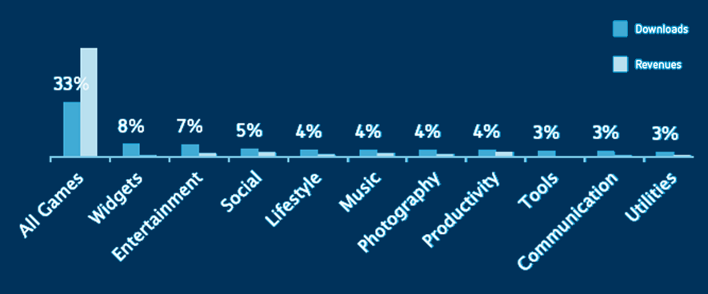Accessing Your Files in the Cloud Can Now Earn Money for App Makers
As more and more personal and business files are stored in cloud services, there’s something of a war going on between companies bidding to be the one place that stores everyone’s stuff. Dropbox is probably the best known, but Google, Apple and business-centric Box are all scrapping over your digital possessions.
Box has now introduced a new tactic in the fight, one that introduces a new twist to the economics of mobile apps. Under a scheme with the grammar-defying name of $rev, if an app leads to a person at a company that pays for Box accessing their files, the app maker gets paid. The recurring payout per user scales up the more a person uses their files, up to a maximum of 15 percent of the monthly fee for one Box user, typically between $10 and $35 a month.
For all their popularity, it is notoriously difficult for mobile apps to earn money and Box’s proposal may be tempting to some developers. Few apps can attract many buyers if priced higher than a few dollars for a one-off download, and ads aren’t generally an option for work-centric apps. The chart below, from app-tracking company Distimo, nicely illustrates where most of the money in mobile apps is today.
“In the [app] marketplaces, the vast majority of revenue and value is going to games and social entertainment apps,” says Aaron Levie, Box CEO and cofounder, “we think this is an easier way for app developers to make money, there’s going to be a new revenue stream overnight.”Levie likens the new model to the way that media streaming services such as Spotify or Netflix pay money to the owners of music and other content that users consume.
Of course, Box isn’t just doing this to improve the lot of mobile app makers. Rather the goal is to encourage developers to make it easy for Box users to access their files, which in turn will make the company’s storage more attractive. However, Levie concedes that other companies – such as Microsoft, Google or Dropbox – could copy his model, leading to something of a bidding war over luring app makers. “I think we will see more of this,” he says, a prediction that, if it comes true, could make the economics of mobile apps quite different.

Keep Reading
Most Popular
Large language models can do jaw-dropping things. But nobody knows exactly why.
And that's a problem. Figuring it out is one of the biggest scientific puzzles of our time and a crucial step towards controlling more powerful future models.
The problem with plug-in hybrids? Their drivers.
Plug-in hybrids are often sold as a transition to EVs, but new data from Europe shows we’re still underestimating the emissions they produce.
Google DeepMind’s new generative model makes Super Mario–like games from scratch
Genie learns how to control games by watching hours and hours of video. It could help train next-gen robots too.
How scientists traced a mysterious covid case back to six toilets
When wastewater surveillance turns into a hunt for a single infected individual, the ethics get tricky.
Stay connected
Get the latest updates from
MIT Technology Review
Discover special offers, top stories, upcoming events, and more.